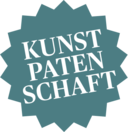Ceremonial Dress of a Knight I. Class of the Order of the Iron Crown
1815-1816 , Draft: Philipp von Stubenrauch
Ceremonial Dress of a Knight I. Class of the Order of the Iron Crown
The Order of the Iron Crown, named after the venerable Crown of Lombardy, was established by Napoleon Bonaparte as a civilian order of merit for the kingdom of Italy. After the Congress of Vienna, the tradition was continued by Emperor Francis, initially for the Lombardo-Venetian kingdom, which had fallen to Austrian, and later in all the lands of the monarchy. Over an inner robe of orange-coloured velvet with silver embroidery the knight wore a round cloak with a train of white-lined violet velvet. The rich silver embroidery of the cloak displays the Iron Crown of Lombardy (with palm leaves and laurel twigs stuck through it), wreathes of oak-leaves and individual letters that spell out the orders motto "AVITA ET AUCTA" ("inherited and increased"). A silver-embroidered collar of the same velvet and a double ruff of white lace were worn over the cloak. The sword, whose handle, worked in massive silver, bears the initials "FP" (Franciscus Primus) and the year 1815, was hung in a sword belt that was also made of violet, silver-embroidered velvet. In accordance with the regulations, the knight also wore a beret of violet velvet with silver embroidery, silver cord and white ostrich feather, gloves of white nappa leather with silver embroidery, stockings of white silk jersey and shoes of white velvet with a blue Atlas rosette. The ceremonial robes were only worn once, in this case on the occasion of the ceremony of investiture on 14.10.1838 in Venice, held after the coronation in Milan of Emperor Ferdinand I as King of Lombardy and Venetia. On display in the Secular Treasury of the KHM
Object data
Object Name
Ordensgarderobe
Dated
1815-1816
Draft
Philipp von Stubenrauch (1784 - 1848) - GND
Image rights
Kunsthistorisches Museum Wien, Monturdepot
Inv. No.
Monturdepot, O 3
Permalink (citable Link) to this page: www.khm.at/en/object/567016/
Kunst & Patenschaft
This object is still without a Art Patron. Accept the patronage and make sure that this cultural treasure is preserved for future generations.
Your donation is a direct and sustainable contribution to the scientific documentation, research, restoration, and presentation of the artworks of the Kunsthistorisches Museum Wien.

